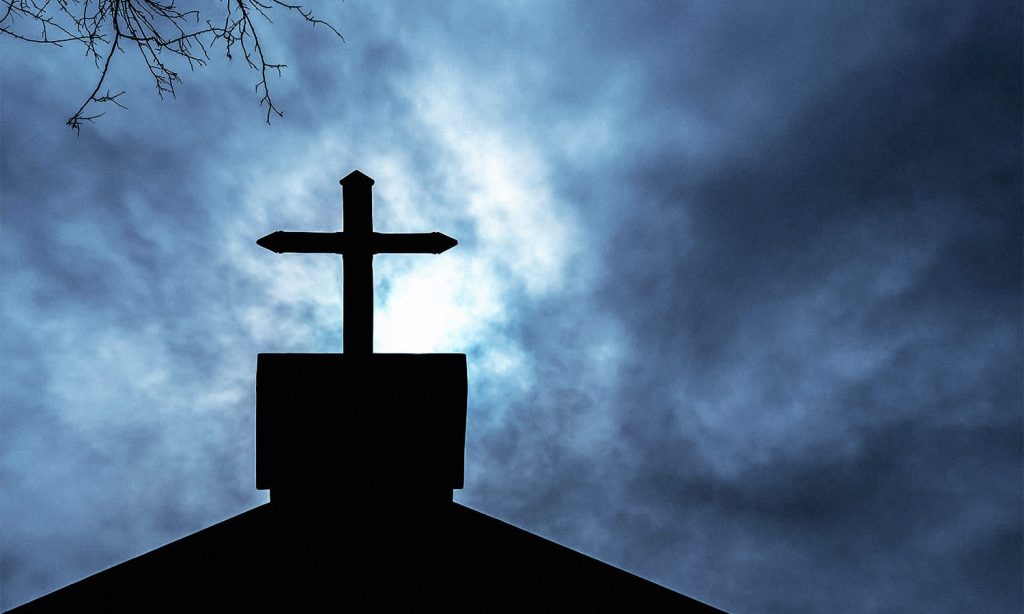A controversial piece of legislation designed to give religious people greater protection from discrimination laws will be introduced into parliament by Prime Minister Scott Morrison tomorrow.
It’s been a long road for the religious discrimination bill, which began life as a Liberal election promise in 2019 in response to the debate around the marriage equality referendum in 2017.
Its main purpose is to ensure that Australians who make “statements of belief” are protected from existing state-based discrimination laws.
The bill touches on highly sensitive issues and has caused problems on both sides of the house as well as in broader public conversations. Its current form, which was released to the public on Tuesday, shows that it has been somewhat watered down in its third iteration to further protect the rights of queer people in response to criticisms from Liberal MPs. Morrison himself is taking ownership of the bill through his introduction in parliament, a sign of his commitment to seeing it delivered.
Initially, the bill had what was referred to as the “Folau clause,” a protection that would bar employers from disciplining their employees for making statements on the basis of religious belief. This is a reference of course to the rugby league player Israel Folau who was sacked by Rugby Australia for saying that God’s plan for gay people was “Hell… unless they repent of their sins and turn to God.”
It also allowed for health providers to refuse treatment on the basis of “conscientious objection” to certain procedures. Although this was removed, it was clearly designed to limit access to abortion, something that has long concerned campaigners.
While these clauses have been removed, the main crux of the bill still prohibits the direct and indirect discrimination of people based on their religion. While religious freedom is a fundamental right, it’s designed to give more weight to religious language in areas that conflict with state legislation on discrimination such as Tasmania’s Anti-Discrimination Act that prohibits speech which “offends, insults, or humiliates” people based on their race, age, sex, or disability.
Examples of the type of speech that may be protected under the new bill include things like medical practitioners refusing to provide contraception or gender transition support on religious grounds, street preaching even where this is locally prohibited, or criticisms of the way that people live and work for not aligning with religious doctrine.
Attorney-General Michaelia Cash has said that the bill will not be used to discriminate against queer people in employment or school settings and that faith-run institutions will need to release public employment policies with a new religious discrimination commissioner overseeing them.
Labor has been broadly supportive of the bill, with Opposition Leader Anthony Albanese saying that he “absolutely” supports religious freedom. However, Labor Senate Leader Penny Wong has said that religious protections should not come at the cost of diminished protections for other people.
“I think our principal position has been that this right – the right to practice your faith freely, which is a human right – should not be protected through the reduction of protections that other Australians have against forms of discrimination,” she told the ABC.
“We will work through the bill, but our principal position is the view I hold – a shield not a sword.”
The big question about the bill is why exactly it is necessary, particularly right now when there are strong calls for the establishment of a federal corruption commission amongst other things.
David Marr has written that this legislation is essentially designed to protect churches and religious beliefs in a world that is rapidly turning away from organised religion. Finding much of their teachings no longer in accordance with the tolerance and freedom of the day, these laws are here to shore up their significance and continue to allow them to avoid accountability for language and behaviour wider society no longer deems acceptable, Marr writes.
Crikey has gone further and explored how Morrison is aiming to shape Australia in the image of his faith, following the Pentecostal doctrine of Dominionism which aims to see Christianity influence all things to bring about the return of Jesus.
On Twitter, the legal firm Marque has stated that the religious discrimination bill “will achieve two things: further entrench the ability of churches to victimise people, and create absolute mayhem in workplaces. It will achieve nothing good and there is no existing problem it will solve. The definition of a bad law”.
It’s hard not to view the bill as revenge for the Marriage Equality Act and an expansion of discrimination on religious grounds. As the bill itself is expected to be referred to a Senate inquiry, we won’t see a vote on it for many months. This means that the debate around religion will continue for a while, opening up old wounds across Australia and reviving conversations many had thought were long dead.
Read more stories from The Latch and subscribe to our email newsletter.







